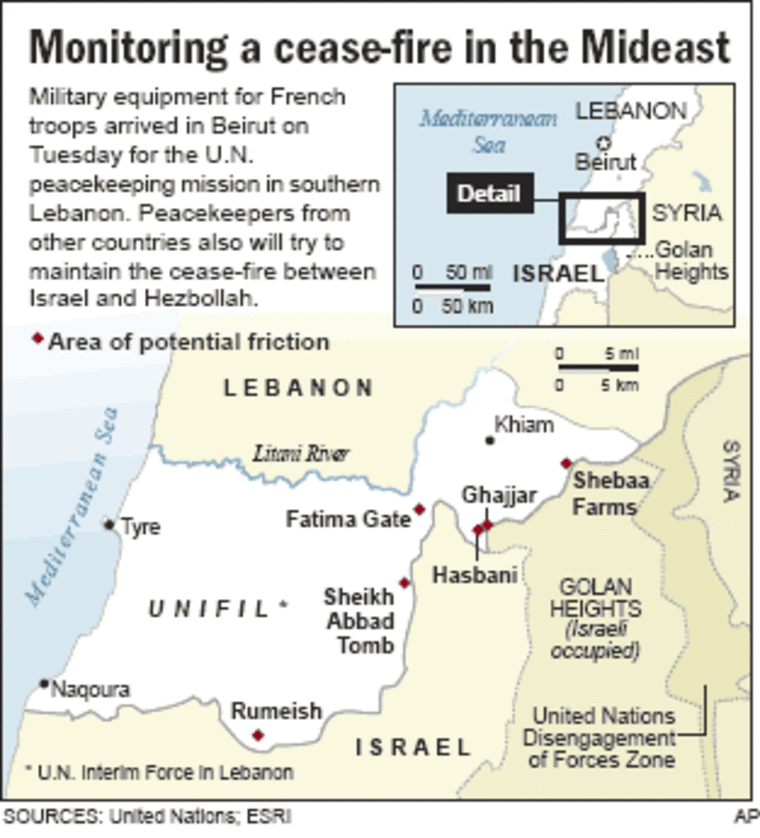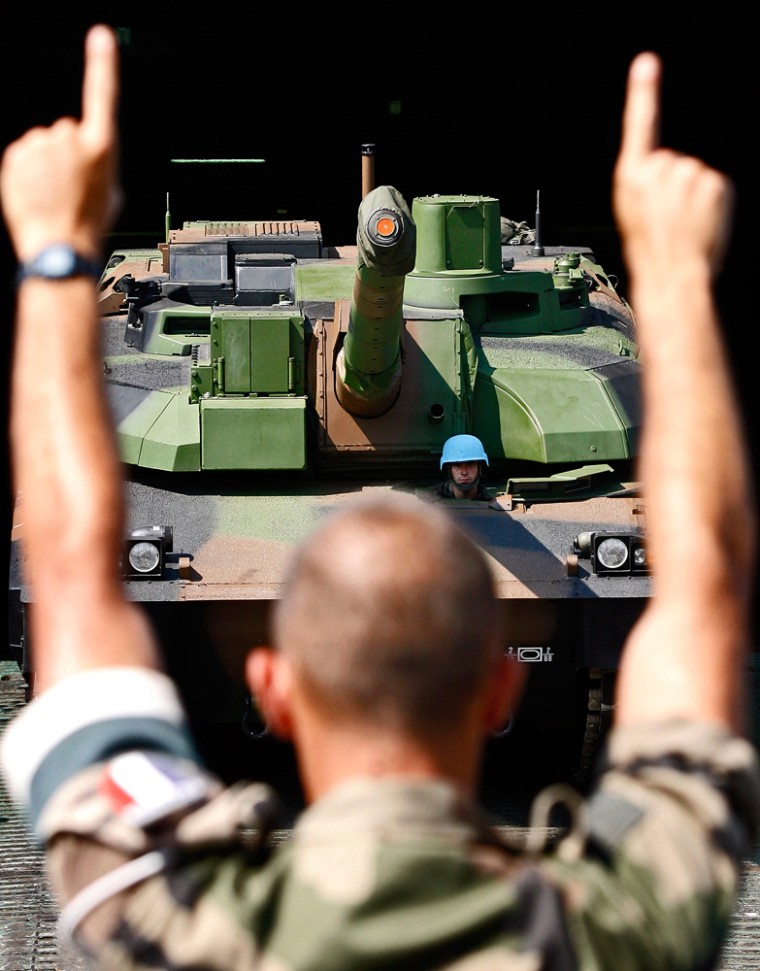Thirteen French tanks, the most powerful armor ever deployed by a U.N. peacekeeping force, rolled ashore Tuesday, beefing up a mission aimed at helping cement an uneasy cease-fire in Lebanon.
But some European officials are concerned international peacekeepers will be at best ineffective and at worst humiliated if hostilities flare between Hezbollah fighters and Israeli troops.
Scores of blue-helmeted French troops transferred the Leclerc tanks, AUF-1 artillery cannons, two high-tech Cobra radar trucks, and dozens of armored vehicles and transport trucks from a cargo ship in Beirut’s port. The port reopened Friday after a nearly two-month Israeli blockade.
The French deployment is part of efforts to give teeth to the U.N. peacekeeping force known as UNIFIL, which has been largely ineffective since it was created for south Lebanon in 1978.
The force is set to grow from 2,000 troops to 15,000 under a U.N. Security Council mandate and will work with 15,000 Lebanese soldiers in keeping the peace.
Thirteen Leclerc tanks, which have never been deployed outside Europe, are the showpiece of the French deployment. Heavy armor such as the Leclerc, with its reinforced Kevlar body, is not typically part of a U.N. force — though battle tanks have been used in some past missions.
60-ton tanks
The tanks, which weigh nearly 60 tons each, feature 120 mm smoothbore cannon, anti-tank and armor-piercing rounds, and anti-aircraft machine guns. Each is operated by a crew of three, has thermal sighting, night vision and an automatic loading system for on-the-move firing. Compared to the U.S. M1 Abrams, the Leclerc is smaller and more compact.
French Lt. Col. Patrick Le Roy, who leads the Leclerc unit, said the tank is more robust and technologically advanced than the Israeli Merkava — a similar-sized tank that was at times taken out by Hezbollah missiles in the fighting that began July 12.
“When you hear that coming, it certainly has a deterrent effect,” Le Roy said as an armored vehicle rumbled by.
The Leclerc will protect personnel and deter aggressors, French Defense Minister Michele Alliot-Marie told AP Television News in Paris.
“When a force is impressive, I think that anyone who intends to attack them or to prevent them from fulfilling their mission, knows that they are taking great risks,” she said.
Alliot-Marie said the rules of engagement had yet to be worked out, and insisted France wants a tough mandate.
“People must therefore know, that if our soldiers are attacked, they will have the means to fight back. I think the dissuasive impact of this is strong,” she said.
Europe working as one
The mission is shaping up as a test for unity of Europe, whose armies are hoping to exorcise memories of past peacekeeping efforts — such as in the 1995 Srebrenica massacre in the former Yugoslavia, which occurred despite the presence of Dutch peacekeepers.
Europe is providing the backbone of the force, and has promised 6,900 soldiers. France heads the ground component, while Italy is in charge of maritime patrols off the coast until Germany’s navy arrives in about two weeks.
“With these European contingents in UNIFIL, we are showing that Europe wants to be on the front lines in the search for a solution in Lebanon,” French Ambassador Bernard Emie said at the port.

“We are together, hand in hand, to help the reinforced UNIFIL succeed,” Emie added, with armored vehicles rumbling and tank tracks clanging on the asphalt behind him.
French Gen. Alain Pellegrini, who commands UNIFIL, said he had met with Lebanese Prime Minister Fuad Saniora and told him the force would reach 5,000 soldiers “very soon.”
Italy’s 1,000-strong contingent formally began operations Tuesday, with patrols along the coast from the Israeli border to the Litani River 18 miles to the north.
“This mission is a historical one for Italy,” said Italian Defense Minister Arturo Parisi after visiting the force. “Our troops have come here to defend the security of Israel, and assist the Lebanese state.”
France has long-standing ties to Lebanon, which was under French administration between the two world wars. French President Jacques Chirac stands to gain politically if the U.N. operation helps restore stability to southern Lebanon.
